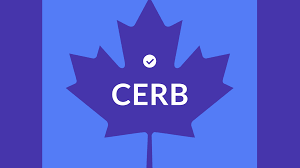 Many of you are already very familiar with the Canadian Emergency Response Benefit (CERB) as it is all over the news right now. If you are currently collecting CERB, there are a few key things that you need to be aware of.
Many of you are already very familiar with the Canadian Emergency Response Benefit (CERB) as it is all over the news right now. If you are currently collecting CERB, there are a few key things that you need to be aware of.
The dreaded income tax next spring
You will have to pay tax on any CERB money received from the government. The tax amount will depend upon how much other income you earn in 2020. If your income overall is quite low, your tax rate will be low, but if your overall income for 2020 is fairly high, the amount of tax you may have to pay could be substantial.
Although money is most likely extremely tight for you right now, if there is any money left after you’ve covered all necessary living expenses, then I would strongly encourage you to save the rest in a separate bank account so you can pay the tax later, rather than spending the money on something you don’t really need. This will reduce the change of you scrambling to pay your taxes next spring. It’s important to always be looking ahead, and now more than ever before.
It’s not going to last forever
Although the federal government extended the CERB to allow for up to six claims rather than only four, you need to be prepared for when CERB is no longer there to supplement your income. You may need to think outside the box and find new ways to earn extra income (if you are unable to go back to what you were doing before).
In addition to finding ways to earn additional income, you need to also start thinking about how you are going to manage your finances in future. You may have had a higher standard of living before COVID-19 that may not be manageable afterwards. If that is true for you, consider setting up a reasonable budget and determine where you can cut spending. This is tough to do as we usually think that all of our spending is reasonable. You may need to have someone else look at your budget and offer their honest opinion.
You may need to provide support to the government
It is possible that the Canada Revenue Agency (the CRA) will require proof of your eligibility to receive CERB. As a result, I would highly suggest that you maintain stellar records. For instance, if you are self-employed, be sure that you can provide support for all revenue and expenditures. If you are an employee, be sure that you keep copies of your time sheets, pay stubs, etc. to prove that you earned less than $1,000. In addition, if you received lay-off letters, keep those in a file. With over 8 million Canadians receiving CERB, it is unlikely that the CRA will have the resources to go after every single CERB recipient, but treat this as if you are going to be one of the unlucky ones that the CRA follows up on. Have as much support as you can that confirms your eligibility. Also, please do not apply for CERB if you have the option of going back to work. It will just get you into trouble, and make you a dishonest person. CERB is there for those who don’t have a job to go back to, or for those earning less than $1,000 in the respective eligibility period.
This is not a fun time for anyone. Please stay safe and keep well during these uncertain times. Keep these three things in mind and I trust that things will work out okay for you.




No Comments